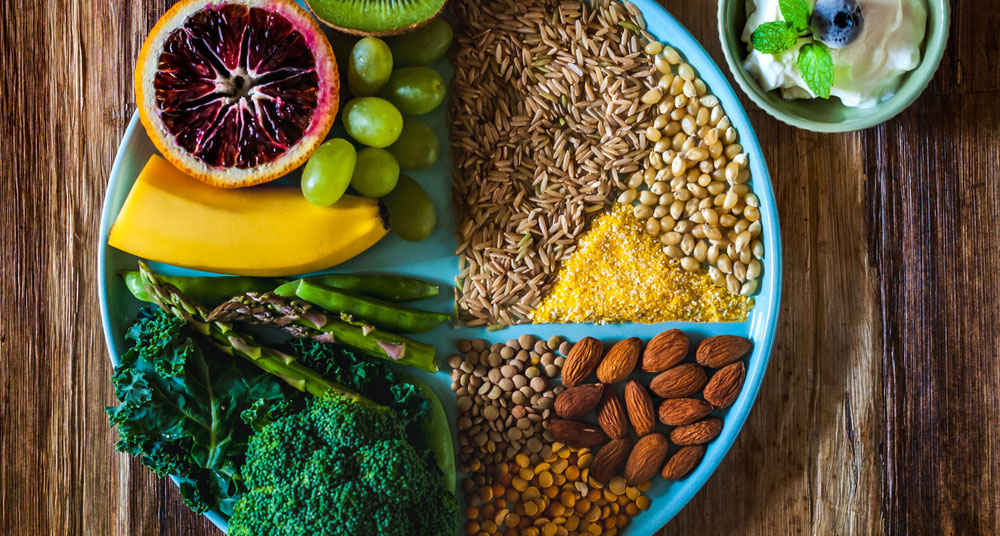May 06, 2021
During the holy month of Ramadan, healthy adult Muslims practice daily fasting from dawn until sunset. Traditionally, one breaks the fast at sunset with the Iftar meal and then eats again with a Suhoor pre-dawn meal. There is evidence to suggest that fasting can have positive effects on your health. By following simple Ramadan nutrition tips, you may lose weight and decrease your blood pressure and cholesterol. Alternatively, over-indulging in Iftar or Suhoor meals can cause weight gain. Ramadan is often seen as a time to practice self-control, self-discipline, sacrifice, and empathy for those less fortunate.
Eat a healthy, balanced Iftar
- Eating three dates to break your fast is a traditional and healthy way to begin Iftar. Dates are an excellent source of fiber and nutrients.
- Incorporate plenty of vegetables to provide vital vitamins and nutrients.
- Choose whole grains, which provide the body with energy and fiber.
- Enjoy grilled or baked lean meat, skinless chicken, and fish to get a good portion of healthy protein.
- In general, avoid fried and processed foods high in fat or sugar.
- Enjoy your meal and avoid overeating by eating slowly.
Don’t neglect the Suhoor
- It is recommended to eat Suhoor, a light meal before the beginning of the fast every day
- This meal needs to include vegetables, a serving of carbohydrates such as bread made from wholewheat, protein-rich food such as dairy products (cheese that is not salty/laban/milk), and/or eggs, as well as a tahina/avocado side dish.
Avoid too many sweets, high fat, and high salt foods
- Avoid too many sweets after your iftar meal. Sweets commonly eaten during Ramadan contain large amounts of sugar syrup. The recommended sweet for consumption is cold water-containing fruit, such as watermelon/melon, or any other seasonal fruit, such as peach or nectarine.
- Avoid over-consumption of foods rich in fat, especially fatty meats, foods made with puff pastry, or pastry with added fat/margarine or butter. Rather than frying, it is recommended to use other cooking methods, such as steaming, cooking in sauce, stir-frying in a small amount of oil, and baking.
- Avoid foods containing large amounts of salt, e.g., sausages, processed and salted meat, fish products, olives and pickles, snack foods, salty cheeses, various types of ready-made crackers, salads, spreads, and sauces. When preparing the meal, it is recommended to reduce the use of salt, including using the saltshaker at the table. Use various herbs to enhance the flavor of foods.
- Eat slowly and in amounts appropriate to the needs of each individual. Big meals cause heartburn and discomfort.
Maintain Physical Activity
- Try to move as much as possible and be active in the evenings; for example, by going for a regular daily walk.
Stay hydrated
- Drink plenty of water between iftar and suhoor meals. This year, the Ramadan fast falls on long and hot days. High temperatures can also make you sweat more, so it is essential to drink fluids to replace what you lose during the day (at least ten cups).
- You can also increase water intake by eating hydrating foods. Try adding watermelon to your suhoor meal, or eat it as a sweet treat after Iftar. Green salad contains plenty of hydrating cucumber and tomato.
- Avoid caffeinated drinks such as coffee, tea, and cola since caffeine may lead to dehydration. Also, remember that fizzy drinks with sugar will add calories to your diet.
Fasting guidlines for special groups
People with Type 2 diabetes and hypertension who have their conditions under control may be able to fast. However, fasting with diabetes can lead to complications. Therefore, the decision about whether to fast must be made on an individual basis in consultation with a healthcare provider, considering the severity of illness and the level of risk involved. Pregnant women and nursing mothers should also refer to their doctor for advice.
Ramadan Mubarak!
References:
- World Health Organization. Dietary recommendations for the month of Ramadan
http://www.emro.who.int/nutrition/nutrition-infocus/dietary-recommendations-for-the-month-of-ramadan.html - International Diabetes Federation. 2021.
https://www.idf.org/ - U.S. Academy of Nutrition and Dietetics. April 2020. Ramadan The Practice of Fasting
https://www.eatright.org/health/lifestyle/culture-and-traditions/ramadan--the-practice-of-fasting
Dima El-Halabi, MSc, RDN
College of Health Sciences
Abu Dhabi University

